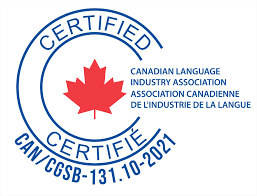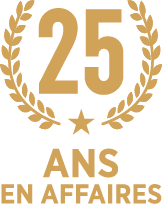Bill 96 is the latest chapter in the history of Quebec language law. Whether you already operate a business in Quebec, you’re thinking of expanding or starting a business in Quebec, or you’re an employee, Bill 96 has implications for all of us. In this article, we will explain Quebec’s Bill 96 and explore the most recent requirements and what these changes mean for doing business in Quebec.
Important: LAT Multilingual are language professionals, not legal advisors. We are here to help you navigate the Quebec Office of French Language and French Charter requirements.
Quebec’s Bill 96 explained
If you’re unfamiliar with Quebec or Quebec language law, you may be asking yourself–what is Quebec’s Bill 96? In summary, Bill 96 is a recent amendment to Quebec’s Charter of French Language. The Charter (also known as Bill 101) was enacted in 1977 to establish French as Quebec’s official language. It is the central piece of Quebec’s language policy. Fast forward to June 2022, Bill 96 Quebec was adopted as a new amendment to the Charter. The Bill’s full name is An Act respecting French, the official and common language of Quebec.
As the name suggests, Bill 96 expands on, clarifies, and amends certain requirements from the Charter to encourage the use of French as the primary language across the province of Quebec. Bill 96 further promotes the use of French in schools, government services (except healthcare and social services), businesses, and more. Changes are coming into effect in waves. They began in June 2022 and will be continuing into 2025.
What is the purpose of Quebec’s Bill 96?
Changes to Quebec language law may raise concerns for businesses. As can be expected, many English-speaking Quebecers, as well as other interest groups, have pushed back against the bill. But at the end of the day, Bill 96 is simply designed to protect the use of French in Quebec. Why is it necessary to protect the use of French in the province? Particularly in Montreal, French is no longer the lingua franca. Its use has declined in recent years, which has motivated these new changes. According to government officials, Bill 96 is not meant to discriminate against other languages but rather to uplift the use of French in Quebec.
Bill 96’s biggest impacts on doing business in Quebec
Bill 96’s first wave of requirements, which went into effect on June 1, 2022, made a big splash across the province. Some notable changes for businesses included stricter French language requirements for employment documents, higher French proficiency requirements for employees, and changes to French packaging and labelling laws.
The Office québécois de la langue française (OQLF) is responsible for implementing the new requirements of Bill 96. The Office can conduct evaluations of businesses to ensure compliance with the Bill, and non-complying businesses are subject to fines of up to $30,000.
Employment documents
As of June 2022, employment documents such as agreements, offers, promotions, and training materials must be provided to employees in Quebec in French. Similarly, employers must post a French version of all job postings. English postings are allowed, but the translated French version must be distributed in an equal manner.
Marketing & customer service
In accordance with Quebec’s Bill 96, all businesses that offer goods or services must respect the consumer’s right to be informed and served in French. This umbrella covers all forms of customer service, including having a French version of all of your business’s website pages.

Labelling
Bill 96 introduced a subtle but important amendment to the Charter’s original labelling requirements. If English (or any other language) is used on a label, it cannot be on more favourable terms than the French version. This means even small differences in font size between English and French on packaging can result in a fine. It’s worth taking a close look at your packaging translations to ensure you’re complying with this new amendment.

June 2023: What’s new from Bill 96
On June 1, 2023, one year after Bill 96 received royal assent, several new requirements went into effect. This section will highlight some relevant recent amendments for those doing business in Quebec.
French language reporting for small businesses
As of June 2023, small businesses with 5 to 49 employees must declare their employees’ French language skills. Businesses will report how many of their employees are “unable to communicate in French.” This requirement applies to new and existing businesses, and the results will be publicly available.
Business contracts
Contracts of adhesion, which include employment contracts, insurance contracts, collective agreements, and any other standard contract drawn up by one party, must be provided in French. As long as a French contract has been provided, signing parties are allowed to request an English version.
The future of Bill 96 and businesses
As we mentioned earlier, new Bill 96 amendments for businesses will continue to come into effect until June 2025. So now is your time to get ahead of the curve and begin translating the necessary materials.
Navigating French language requirements–you’re not alone
Bill 96 and Quebec language laws may seem intimidating. We get it. And we understand that translation can be a challenge for businesses with so many other tasks to focus on. We want to help. Our French translation team is based in Quebec. They are fully immersed in the culture and can support you along the way, from corporate to marketing content, customer service and social media. Get in touch with us today.















